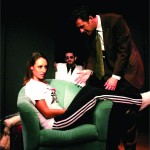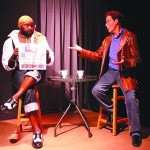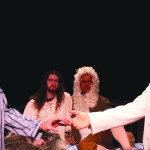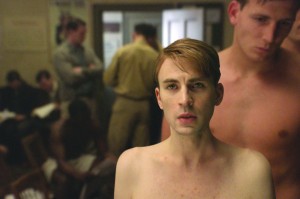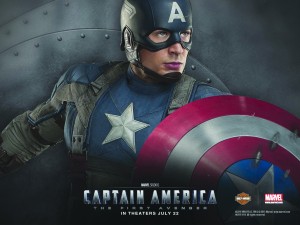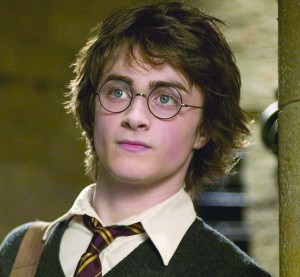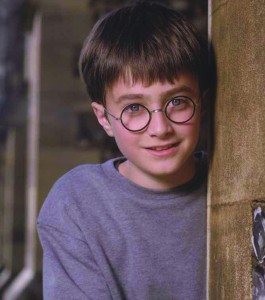A film review by Warren Day
A positive stereotype that both heterosexuals and homosexuals hold about gays is that they’re more creative than most and without them theater would be half what it is.
If that’s true, then why is it so hard to come up with a substantial list of great gay plays – that is, plays of lasting value that focus on the lives of gay men and lesbians? Give it a try and see if you don’t have difficulty in listing five masterpieces, much less ten, and if you remove the ones that deal with AIDS, you might have trouble naming three. Where is our “Death of a Salesman” or “Long Day’s Journey into Night?”
Even the best playwrights who were homosexual (Oscar Wilde, Tennessee Williams, Thornton Wilder, Edward Albee) produced no great work dealing openly with gays. In Tennessee Williams’ plays, the gay character is always dead before the curtain goes up (i.e., Blanche’s husband in “Streetcar,” Brick’s football buddy Skipper in “Cat,” and Sebastian in “Suddenly Last Summer”.)
Some of the best known gay plays, the ones that originally broke the barriers, can seem quite dated today, such as “The Boys in the Band” and “Tea and Sympathy.” The exception to this is possibly “The Children’s Hour.”
And while Terrence McNally (“Love! Valour! Compassion!”) and Paul Rudnick (“Jeffrey”) may have given us some enjoyable and meaningful evenings in the theater, only a few would call their plays timeless classics.
So, almost by default, Tony Kushner’s “Angels in America” obtains the distinction (and the burden) of being called “the greatest gay play ever written”. In dramatizing the moral quandaries of the AIDS crisis in 1985, in both public and private lives, it has umpteen awards to support that claim, winning both the Pulitzer and the Tony and, as a mini-series on HBO, a slew of Emmys and Golden Globes. Harold Bloom, the go-to arbitrator of such questions, put it on his list of the greatest works of literature in the western world. For now, at least, it’s the “Hamlet” of gay plays.
And the Andrews Living Arts Studio (ADL) in Fort Lauderdale is giving you a rare chance, until September 4, to see this gay masterwork, a play not seen in south Florida for over a decade.
Granted, it’s so highly-acclaimed and that gays hold so prominent a role behind and in front of the curtain in Florida theater, why hasn’t it been staged more often?
For one reason, it’s a difficult play for a community theater to do because it’s actually two plays running seven hours total (ADL is doing only an abridged version of “Part I: Millennium Approaches”); the script is multi-layered, epic in its themes, and consistently shifts between reality and fantasy. “Angels” requires a level of acting and directing that’s hard for any company to achieve.
ADL deserves big kudos for attempting such a play. However, I cannot review intentions or ambition, only the results, and on that score it’s a very disappointing production. Anyone seeing “Angels” for the first time here would have no idea why it’s considered a great play.
The acting ranges from adequate to embarrassing, with at least three of the actors noticeably older than the characters they’re playing. That last point is not minor, since questions and struggles that occupy people 27 to 32 begin to strain acceptance when played by someone who looks at least ten years older than that.
Part of Kushner’s genius is how he uses mundane language to communicate profound meanings and humor to explore some of life’s darker moments; but in this production, the mundane stifles the profound and much of the poetry and laughter is lost in delivery.
After being assured they would be using the Broadway script, I found at least an hour had been cut, with whole scenes and characters gone, and with them some of the needed coherence and substance. Joe Pitt’s mother is now in only one brief scene, and Ethel Rosenberg is reduced to some spooky music.
The director still has some of the 11 actors play multi-roles, but he changes the careful schematic Kushner intended. There was a good reason to have the Mormon mother play the male Rabbi, the Angel to play the nurse, and the same actor who plays Lewis’ lover be his trick in the park. That’s all changed in this production, and it’s to the detriment of the evening.
As to the larger question of why there are so few great gay plays, if you keep in mind that dramas focusing openly on gay issues and characters have only happened in the last 43 years of the 2500 year history of theater in the western world, then maybe it’s more understandable that there isn’t yet a longer list of classics. That same period has also been a lean time in producing masterpieces on the lives of straights (hence all the revivals).
Instead, think about what a future Tennessee Williams or Oscar Wilde might write, or what they and others could’ve written if their times had been different. If you remember that William Shakespeare wrote his most ardent love poetry to a young man, then just try and imagine the gay play we might have today if he’d been allowed his “Romeo and Romeo.”
As the angel says at the end of “Millennium Approaches,” “…the great work has (just) begun.”
What Are Best Gay Plays?
Remember this isn’t a list of the most enjoyable or personally meaningful, but simply what might be considered the best written of the plays that have their main focus on gay issues or a gay or lesbian character. In alphabetical order, my personal list would include:
• Angels in America by Tony Kushner
• Bent by Martin Sherman
• Boston Marriage by David Mamet
• Breaking the Code (about Alan Turing)
by Hugh Whitemore
• The Children’s Hour by Lillian Hellman
• The Dresser by Ronald Harwood
• Entertaining Mr. Sloane by Joe Orton
• Falsettos by William Finn
• Fifth of July by Langford Wilson
• Gross Indecency by Moises Kaufman
• Hedwig and the Angry Inch by John Cameron
Mitchell and Stephen Trask
• The Invention of Love by Tom Stoppard
• The Killing of Sister George by Frank Marcus
• La Cage Aux Folles, the musical by Jerry
Herman and Harvey Fierstein, original play by
Jean Poiret
• The Laramie Project by Moises Kaufman
• Loot by Joe Orton
• M Butterfly by David Henry Hwang
• The Normal Heart by Larry Kramer
• Take Me Out by Richard Greenberg
• Torch Song Trilogy by Harvey Fierstein
Let us hear your reactions, opinions and suggestions by emailing AgendaReviews@aol.com
Andrews Living Arts Studio is located at 25 NW 5th Street, Fort Lauderdale 33301. Performances Thurs thru Sun at 7:30 p.m. till Sept. 4. Buy tickets for $24.95 at www.andrewslivingarts.com, or 800-838-3006. At the door, $29.95.


